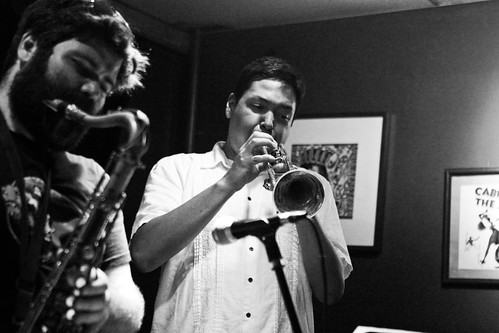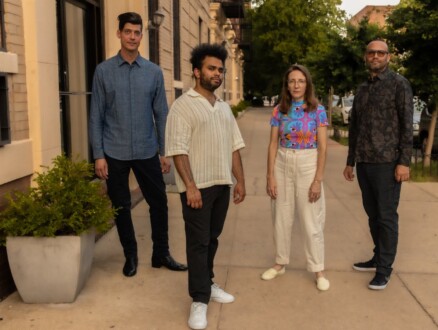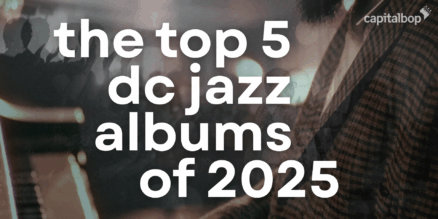Day giggers vs. ‘real’ musicians: the false dichotomy

Sriram Gopal
Swing District
I very clearly remember the moment – it happened during my sophomore year of college – when I decided not to pursue music as a full-time career. I was a biochemistry major at the University of Maryland, but spent most of my spare time rehearsing with bands or in the practice rooms. One afternoon, after a jam session with some friends, I spent the rest of the day contemplating changing my major to music. By the time I went to bed that night, my decision was made, and I never revisited my choice: to have a more traditional 9-to-5 lifestyle while feeding my music habit during evenings and weekends.
I don’t regret that decision. But one can’t help contemplating the road not traveled, which has led me to thinking about the role of part-time musicians within the jazz community (to clarify: I consider musicians who teach during the day to be full-time, working players). The District has a rich artistic history, especially with respect to jazz, but so many of the musicians here are day giggers like me. To explore the issue further, I approached two friends who both are also in their 30s, and for whom I have the utmost respect as musicians. They come from similar backgrounds, having received a formal music education in college, but their professional lives differ greatly. In my interviews with them, I hoped to compare their experiences with mine while drawing out some broader themes about this intensely personal choice.

Joe Herrera is the archetypal working musician, wearing many hats – including those of trumpeter, producer and bandleader. The Arizona native has been in D.C. just shy of 10 years, and can be seen co-directing the Bohemian Caverns Jazz Orchestra, playing with the Funk Ark and as a sideman with a number of his colleagues. Bassist Matt Grason chose a very different path. After receiving a graduate degree from the Manhattan School of Music, he returned to the area and began gigging around town while building up a roster of students. After having music as his primary profession for 15 years, Grason decided to get a day job in the non-profit world. These days, his main musical venture is his band, House of Soul, which specializes in jazz-infused house music that replaces the standard DJ with a live band.
The major issue that both gentlemen brought up was financial. Whether it’s Bach or Mozart composing for the church, a record company giving a young rock band an advance, or an artist accumulating a large and supportive enough audience, musicians must find the money for rent somewhere. Herrera, who says he is now considering getting a day job, depends on his gigs to earn money. But with the success of groups like the Funk Ark, he often must turn down weekend “society” gigs that pay well in order to hit the road with the band.
“Unfortunately, it seems the more you try to do the right thing musically, your wallet feels the effect,” he said.
Thanks to earnings from his 9-to-5, Grason serves as his own patron. “I can give local musicians gigs and pay five musicians out of my pocket when the venue only pays enough to hire two,” he said.
In Grason’s case, his varied interests drove much of his decision to leave the grind of being a full-time artist. He wanted to spend time with friends whose schedules rarely coincided with that of a working musician. He also felt a need to have a profession that gave him a “sense of contributing to the greater good.” Most importantly, Grason wanted the range of choices, both personal and musical, that came with financial independence.

“Music went from being my master to being an inspiring hobby again, like when I first started playing as a teenager,” he explained.
But does the decision to take a day job affect one’s musical abilities? After all, people like Herrera have the flexibility to hone their craft in a way that a person with a day job does not. Instead of spending all day in an office, sitting at a computer, he can devote time to practicing, writing and booking new opportunities. In my case, over ten years have passed since I’ve had a daily practice routine and I’m lucky to have more than a few hours of dedicated practice in a given week. But my technical limitations gave rise unexpectedly to a different kind of creativity, forcing me to do more with less while giving a new focus to the practice time that was available. While Herrera sees a lot of value to spending time in the woodshed, he draws no distinctions when it comes to sharing the stage with full-time or part-time musicians.
“I know D.C. is very much a ‘what do you do’ town. I don’t think that translates to the stage,” he said. “The proof is in the pudding.”
Whether a musician decides to pursue that passion full-time or not, there is something noble in either decision, because each requires its own set of sacrifices. In the end, however, listeners don’t care how performers earn their living, so long as they create an engaging experience that is worth the price of admission. When day giggers like me are on stage, we are professionals. We must strive to blur the distinction with dedicated musicians like Herrera. The ultimate goal is always the same: to create quality music with integrity, while leaving behind what Grason called “a creative legacy.”
—
Sriram Gopal is CapitalBop’s monthly columnist. He can be reached at [email protected].
9 to 5, arts business, day jobs, DC, DC jazz, jazz, Joe Herrera, Matt Grason, music management, Sriram Gopal, Swing District, Washington






